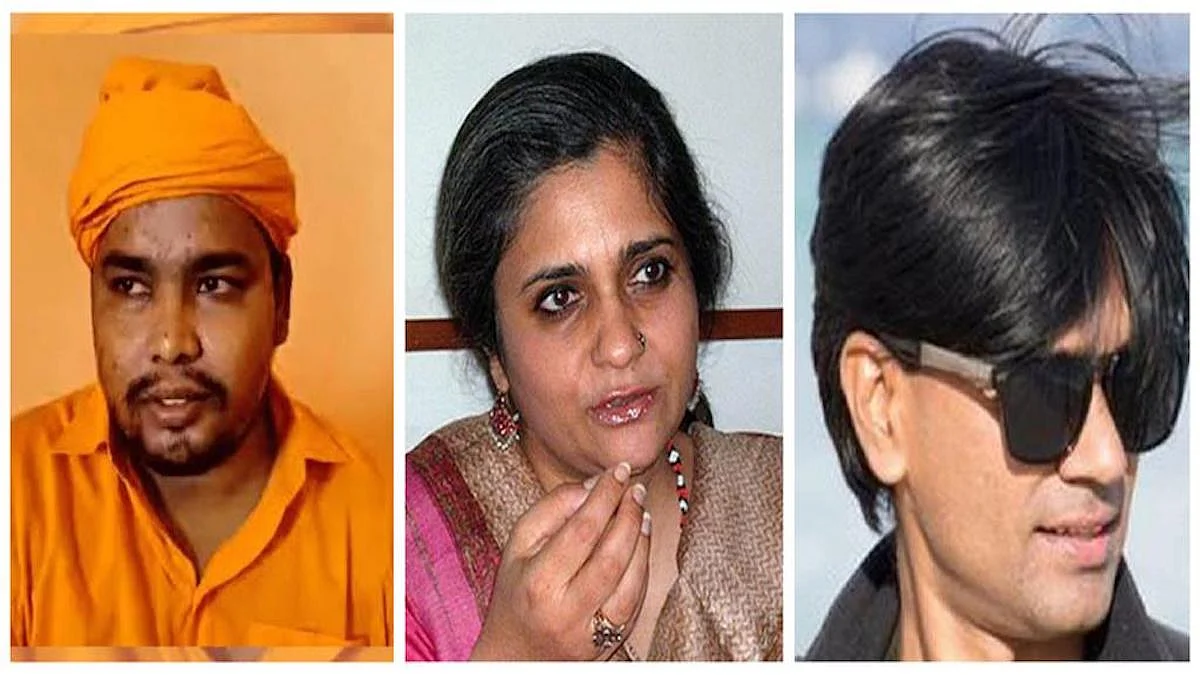Maybe we need a little less conversation, a little more action from hon. Justices
Zubair’s exact crime itself is not immediately comprehensible. Nor is the reason why he cannot be given bail. What adjective should one use for a person who makes open threats of genocide and rape?

India’s Additional Solicitor General SV Raju, appearing for the Uttar Pradesh Police, said to the Supreme Court last week that Bajrang Muni is a “respected mahout religious leader” in Sitapur and if he is called a “hate-monger” as Alt News co-founder Mohammed Zubair did on Twitter, then “it raises problems”.
Interestingly, for the Government of India or the UP Police or the ASG himself, are the words of Mahant Bajrang Muni Udasin, head priest of the Badi Sangat Ashram, not problematic in themselves?
In April this year, this “respected religious leader” had called for mass rape of Muslim women, something he will be well-known for. In front of the police, he stated, “If you harass one Hindu woman, then I will openly abduct your sisters and daughters and rape them.” There is ample video evidence of his threats.
The National Commission for Women had at the time written to the Uttar Pradesh DGP to take action against this respected religious leader because of his many threats against Muslims and Muslim women.
He also raised this slogan at a rally, “Jab Mulle kaate jayenge, Ram Ram chillayenge”. Which roughly translates to: “When Muslims will be butchered, they too will cry ‘Ram Ram’.
This slogan was popularised after it was shouted by the Jamia shooter, Rambhakt Gopal during the anti-CAA protests in 2020 and has been repeated at various Hindu militant events.
Bajrang Muni’s sentiments, statements and calls for violence are not hidden. Any internet search will bring them up.
Obviously, he is not in jail.
But Mohammed Zubair is, for -- besides flagging the hate patronised by the ruling regime -- calling Bajrang Muni a “hate monger”.
So, what exactly constitutes hate speech in India and what constitutes an offence to religious sentiments?
To quote senior advocate Colin Gonsalves, also Zubair’s lawyer: “The persons who made hate speech, they have been released on bail. And the person who exposed them, he is in jail. What this country has become.”
The upshot appears to be that we don’t know.
The Advocate General of India also observed that Yati Narsinghanand, who was sent to judicial custody for 14 days by a Haridwar court for his call for genocide against Muslims at a religious gathering last December, could be proceeded against for contempt of court for subsequent remarks against the Supreme Court.
Notably this, in an interview: “Those who believe in the Constitution will be killed. Those who believe in this system, in these politicians, in the Supreme Court and in the Army, will all die the death of a dog.”
That the case has not yet been listed six months later is another matter.
Basically no one can claim to be unaware of the people that Zubair exposed and called “hate mongers”.
We must accept that the functioning of the judicial system and its arcane terminologies and convoluted arguments are well beyond the understanding of ordinary folk. And that there are some legal necessities and procedures which bind the courts that must be followed, for some imperative if occasionally obscure reasons. We understand all that.
But somewhere, as Gonsalves pointed out, something is amiss.
Zubair’s exact crime itself is not immediately comprehensible. Nor is the reason why he cannot be given bail. The word “hate monger” is not unusual. What sort of descriptive would one use for a person who makes open threats of genocide and rape? What would our honourable courts and officers of the court and the police feel is the correct terminology for someone who calls for mass murder and rape? If a person has been reported for hate speech, what should that person be called?
In an aside, former BJP spokesperson Nupur Sharma, whom the Supreme Court observed was “single-handedly responsible for what is happening in the country”, cannot be found by any police force in the country! Sharma had, in case you have forgotten, abused Prophet Mohammed on national television. The party distanced itself from her. But the police still cannot find her.
And several people have problems with that Supreme Court observation as well.
Then there are the observations against journalist-activist Teesta Setalvad, which have landed her in jail for the apparent crime of trying to find justice.
The other issue of course is that our senior judges give most inspirational and fantastic speeches about justice, liberty, Constitutional values, fundamental rights and so on when they give lectures abroad or after they retire. This fills us with great confidence about our marvellous system, and our rights to liberty, equality, justice, freedom of speech and so on.
Maybe, as the old song goes, we need a little less conversation, a little more action?
Am I being too flippant?
But then as a wag on Twitter pointed out to me: ‘Fundamental Rights are apparently now officially subservient to Sentimental Rights’.
True?
(Ranjona Banerji is a senior journalist. Views are personal)
Follow us on: Facebook, Twitter, Google News, Instagram
Join our official telegram channel (@nationalherald) and stay updated with the latest headlines
